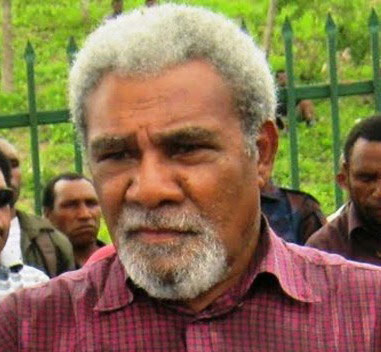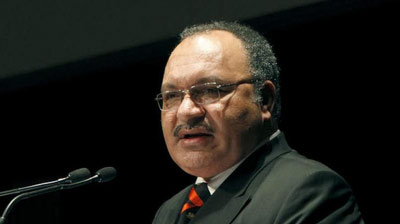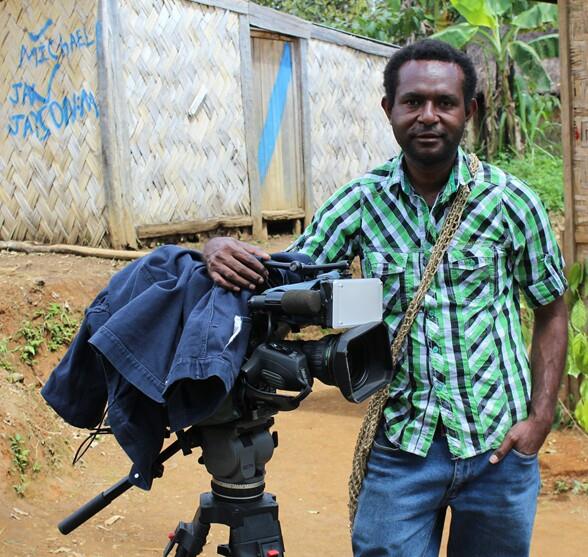
PORT MORESBY (PNG Today/ PNG Post-Courier/ Pacific Media Watch): Papua New Guinea's Prime Minister Peter O'Neill is receiving strong criticism over a new communications law set to be put in place early next year.
Former Prime Minister Sir Mekere Morauta said people needed to be aware of increasing threats by the current government to the right of free speech and to the freedom and independence of the media.
“These precious rights and freedoms are under attack as never before by a Prime Minister demonstrably determined to silence legitimate criticism, including criticism of the official corruption that appears to exist at the heart of government,” he said.
The National Information and Communications Technology Authority Act (NICTA) makes it illegal to "improperly" use the internet to transmit "offensive" or "false" information.
The PNG government said the law is necessary to curtail the rising use of social media as a forum for personal attacks. But Morauta thinks otherwise.
“The Prime Minister’s use of the NICTA Act to clamp down on freedom of speech and the media is an unparalleled abuse of power. The nation would seem to be moving step by step towards becoming a dictatorship.
“Freedom of speech and a fearless, independent media are the cornerstones of democracy, and must be defended by all sections of society," he said.
The former Prime Minister said it was frightening to think of a body such as NICTA being able to lay charges and conduct hearings under vague headings such as “negative impacts on society”, “lies” and “false information”.
He believes O'Neill's plans, implemented by Communications Minister Jimmy Miringtoro, are not laws and powers appropriate for a free, independent democracy such as Papua New Guinea.
But rather they are laws and powers more suited to command-and-control regimes of the former Soviet Bloc.
Sim card registration
Responding to Morauta's critique of plans to register sim cards O' Neill described his comments as "absolute rubbish".
Under the Act 10 million subscribers to mobile phones in Papua New Guinea will be registered in an effort to assist enforcement agencies with implementing cybercrime legislation.
O'Neill said the registering of sim cards is happening around the world and is not a new thing.
“Nobody is stopping people from talking as alluded to by Sir Mekere.
“That is absolute rubbish coming from a man of his standing.”
The Prime Minister explained a lot of teenagers use social media because of lots of pressures they were getting which the government was trying to address.
“This is what the people of PNG should welcome because it is not stopping anybody from having a phone, access to internet or stop being a member of facebook, but to take ownership of what you say or do.”
He said this was not politically related but wanting the people to be educated properly about the privileges of such policies.
Misusing social media
In the Act's defence Miringtoro said some people were using social media to spread false information about the government and the actions of politicians.
"People are using devices that use internet to create problems," he said.
"Tarnishing a person's name can create a very bad situation in the country because some people may not think properly and can react and create a situation where there can be fight or whatever."
He said the laws are aimed at stopping cybercrime.
"Those people who transmit pornographic material, those people who use ICT device to tarnish other people's name, those people who do threatening, those people who steal information."
The minister said the laws were not intended to curtail freedom of speech.
Rather, he said he hoped they would bring some respect to the political debates occurring online.
"People must be responsible when they are talking about certain topics and they were discussing certain issues," he said.
Media clampdown
According to Eric Tlozek from ABC news political bloggers and PNG's media are also outraged at what they say is an attempt to stifle political debate and cover up corruption.
Under the NICTA people could face a fine of up to $A10,000 or jail if they spread "offensive" or "false" information online.
Martyn Namorong is a writer and political blogger who could potentially fall foul of the laws.
"The fact they've enacted such laws indicates that the government clearly does not understand what it's trying to control, so they create such laws out of fear," he said.
Namorong is promising to keep writing about politics.
"I definitely will not stop writing online," he said.
"I definitely will not stop speaking out about things. I definitely will not stop using very strong language."
Morauta said the law is a way to regulate mainstream media by stealth.
“Every mainstream media outlet has social media content, usually a Facebook page or a blog.
“The Prime Minister’s plans would capture all mainstream media content in social media and by default would render it subject to these repressive laws and powers and the secret policemen within NICTA and possibly elsewhere.”
Freedom of information
Radio New Zealand International reported that watchdog Transparency Papua New Guinea said as long as information released by social media is true the government has no right to stop it.
Transparency's chairman, Lawrence Stephens, said the PNG Constitution allowed for freedom of information and his agency insists on this being maintained as a right of the people.
"That information is the right of the people and it is also the right of government and other individuals not to have people telling blatant lies about them, but if the information is factual and it affects the population, then there is no reason why it shouldn't be made available by social media or even Radio New Zealand."
Morauta warned that if these laws go ahead, the exchange of ideas, the discussion of new ways of looking at issues affecting the nation, the loss of previously unheard voices contributing to national development, the place of Papua New Guinea in the wider information economy would be lost or greatly impaired.
“The nation simply cannot afford to allow these plans to be implemented. They are harmful socially, economically and politically. They do not serve the national interest. They are designed purely to serve political self-interest of the powers that be.”
This work is licensed under a Creative Commons Attribution-NonCommercial 3.0 New Zealand Licence.




